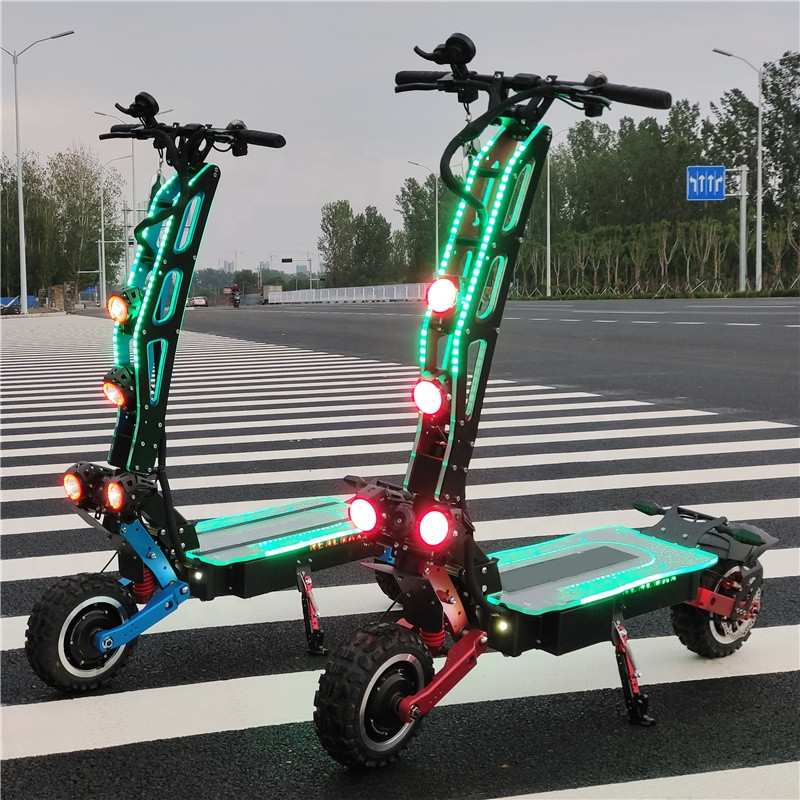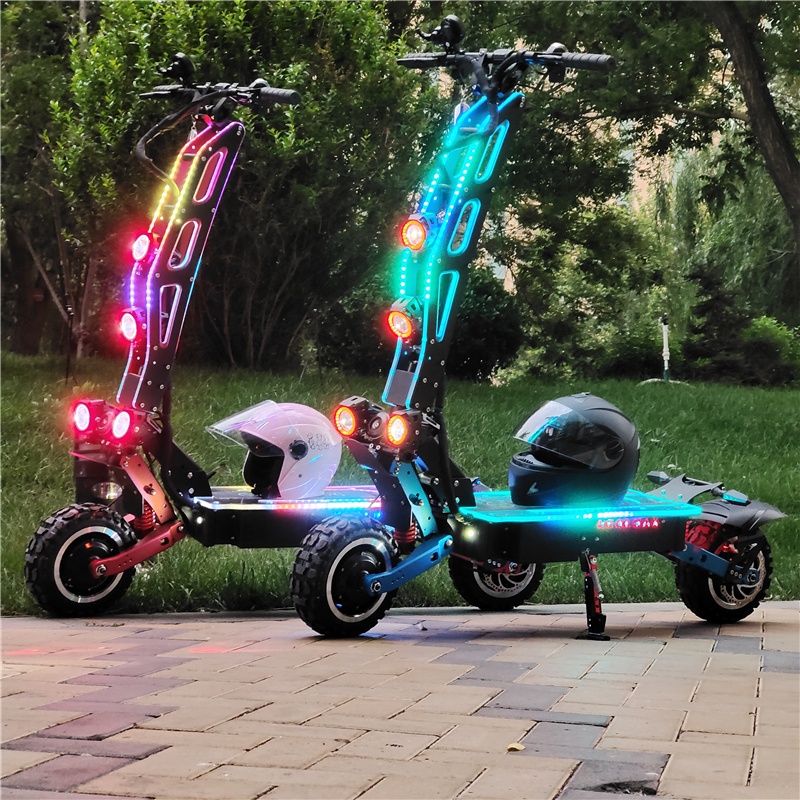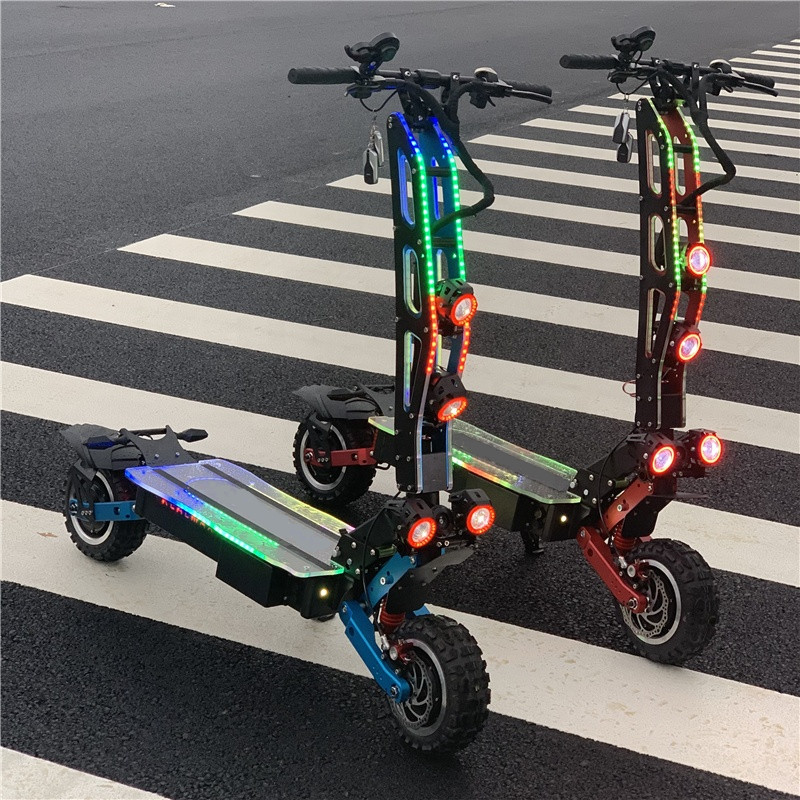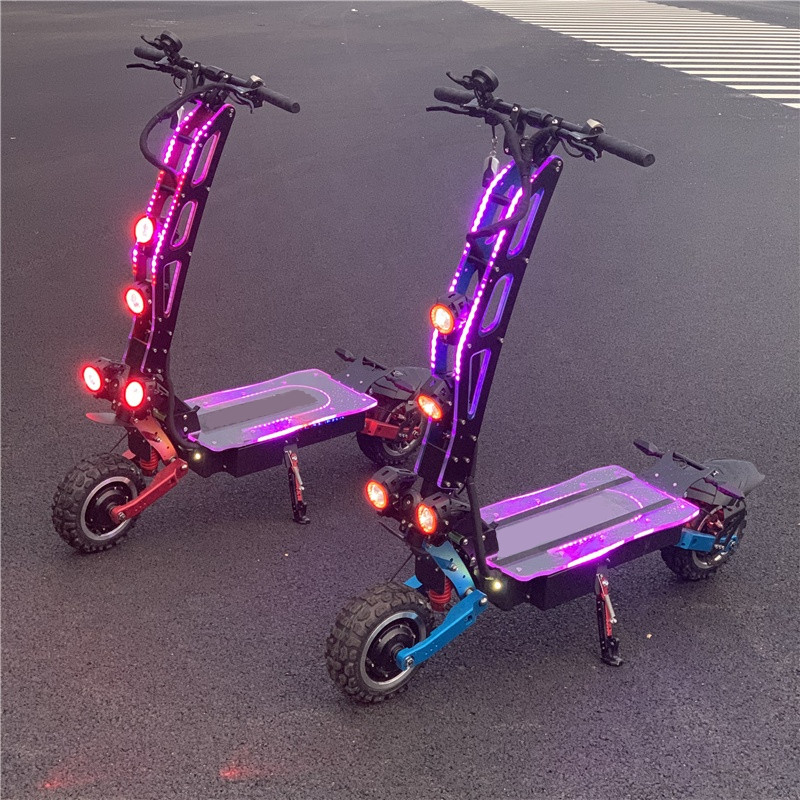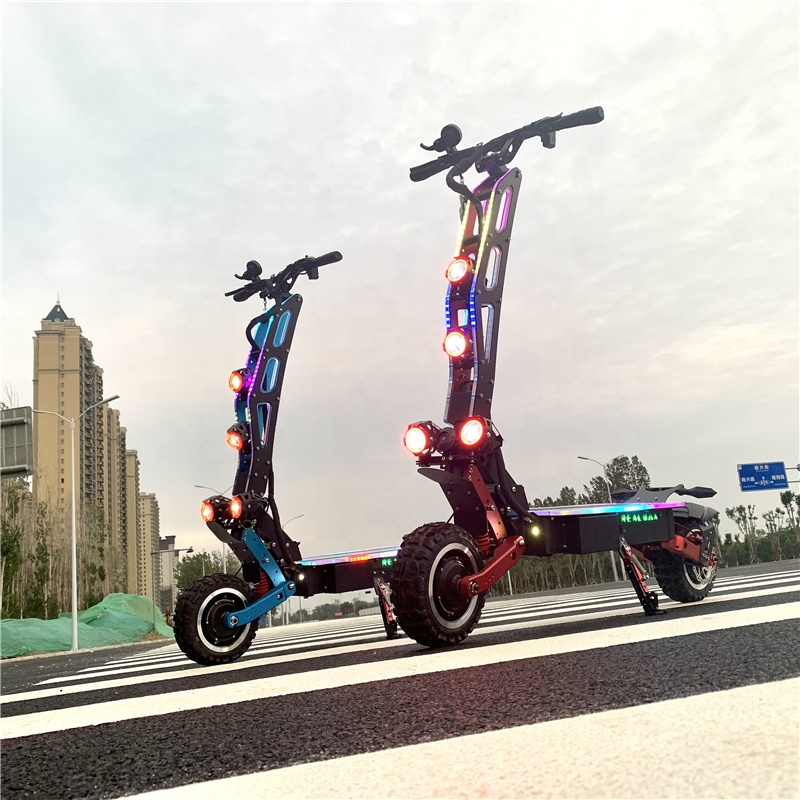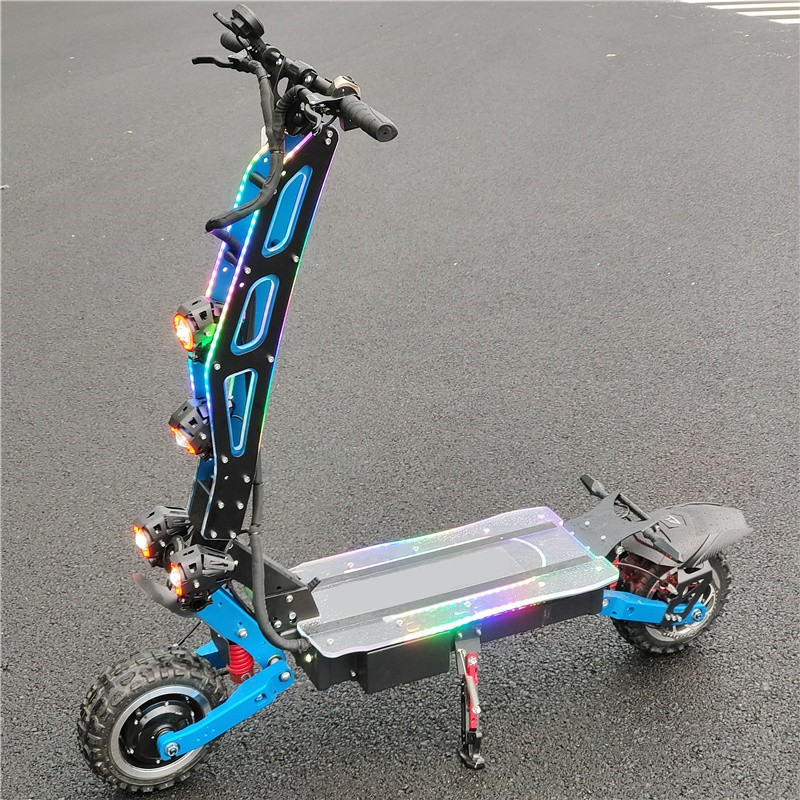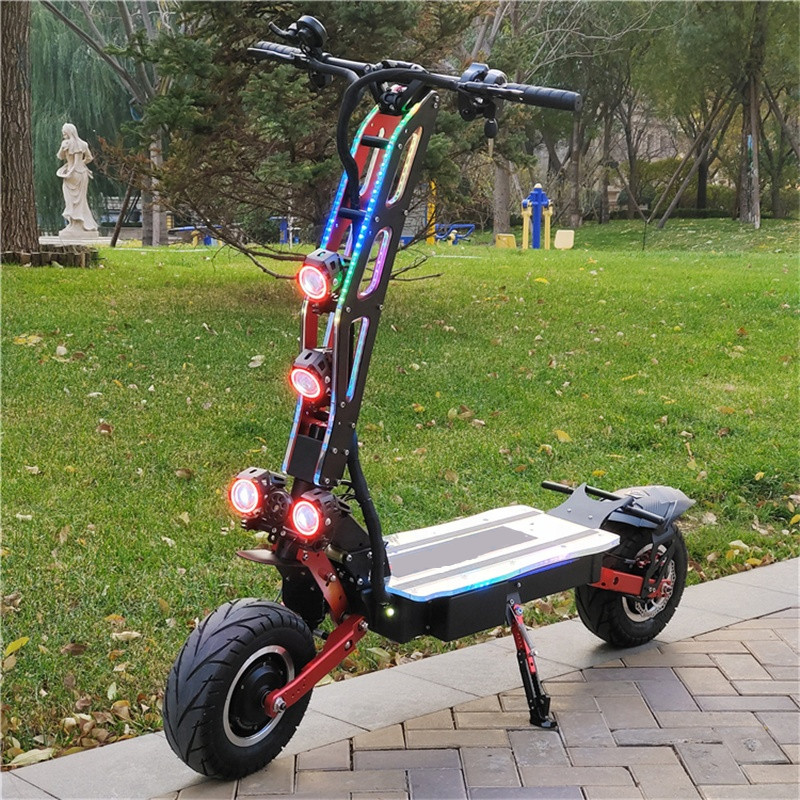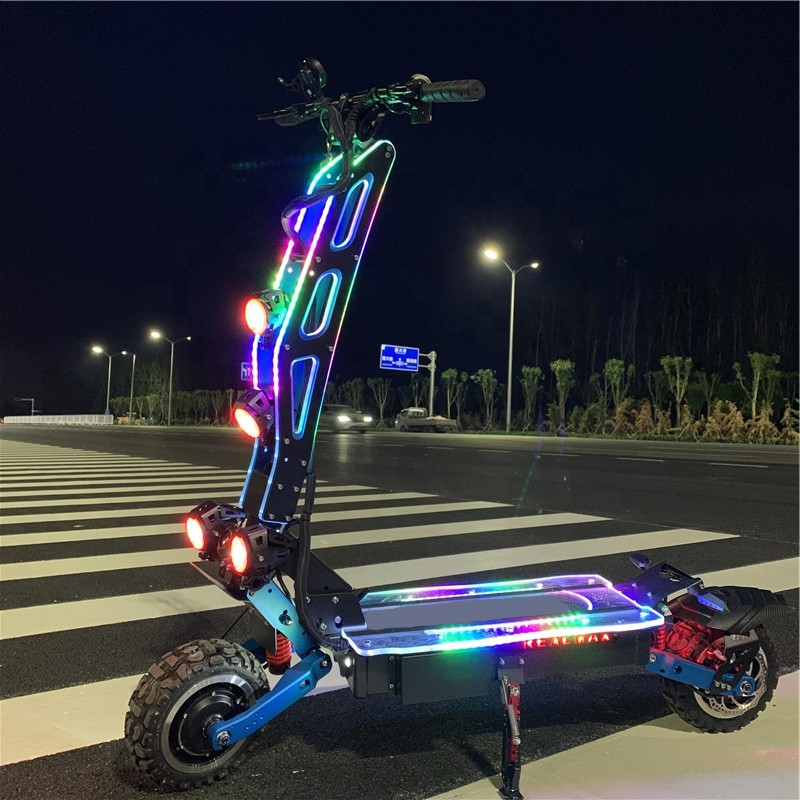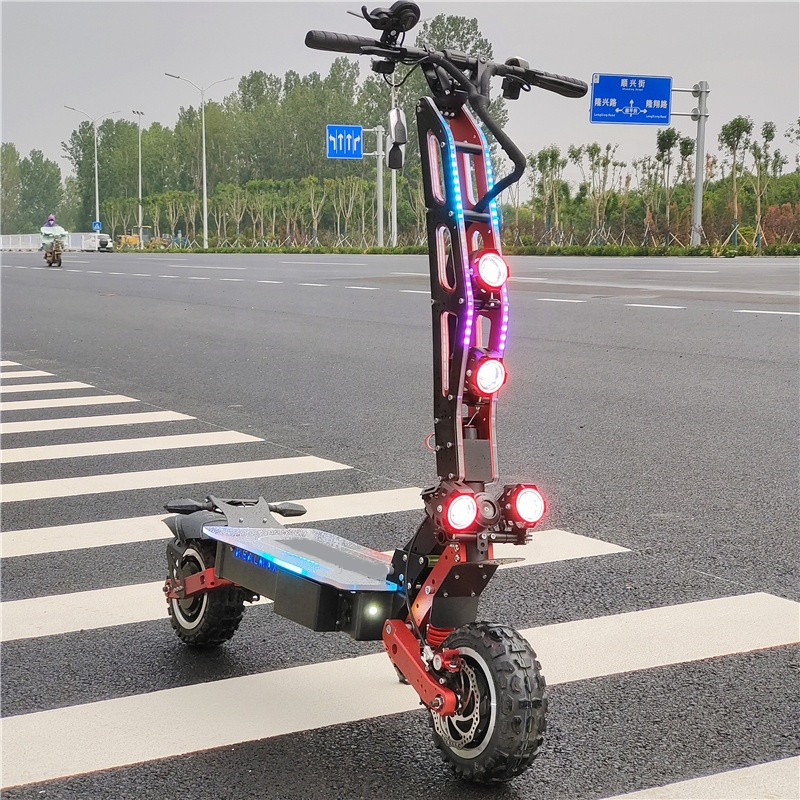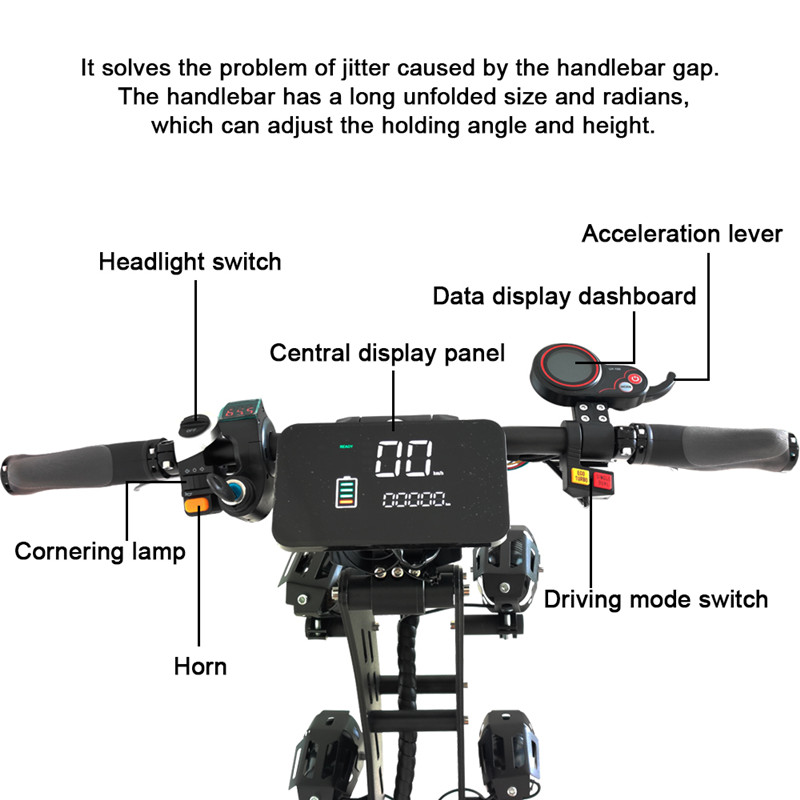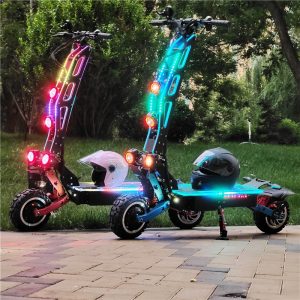Description
bicicletas para adultos
patinete eletrico
electric motorcycle scooter
| Parameter | |
| Frame | High strength aluminum alloy 6061, surface paint |
| Forking forks | One forming front fork and rear fork |
| Electric machinery | 11 “72V 10000W brushless toothed high speed motor |
| Controller | 72V 70SAH*2 tube vector sinusoidal brushless controller (mini type) |
| Battery | 72V 40AH-45AH module lithium battery (Tian energy 21700) |
| Meter | LCD speed, temperature, power display and fault display |
| GPS | Location and telecontrol alarm |
| Braking system | After one disc, does not contain harmful substance, in compliance with international environmental requirements |
| Brake handle | Forging brake of aluminum alloy with power breaking function |
| Tyre | ZhengXin tire 11 inch |
| Headlight | LED lenticular bright headlights and driving lights |
| Maximum speed | 110km |
| Extension mileage | 115-120km |
| Motor | 5000watt per piece |
| Wheel | 11inch |
| Net weight and gross weight | 54kg/63kg |
| Product size | L* w* h: 1300*560*1030 (mm) |
| Packaging size | L* w* h: 1330*320*780 (mm) |
Title: Scooter Electric (electric scooter)
Summary: Electric scooters are an environmentally friendly and convenient short-distance means of transportation that have become increasingly popular around the world in recent years. This chapter will introduce in detail the definition, types, development history, advantages and disadvantages, market prospects and future development trends of electric scooters.
1. Definition
An electric scooter, also known as an electric skateboard or an electric scooter, is a two-wheeled vehicle powered by electricity. Its shape is similar to a skateboard, but it has a fixed seat and handles. Electric scooters allow drivers to move quickly on the road with the help of electricity, and are suitable for short-distance travel in cities, commuting, and leisure and entertainment scenarios.
2. Type
According to the vehicle structure, function and performance, electric scooters can be divided into the following types:
1. Electric scooters: Mainly used for short-distance travel in cities, they are lightweight and easy to carry. Usually foldable design for easy portability and storage.
2. Electric scooter: It has high speed and strong power, and its appearance is similar to that of a motorcycle. This type of electric scooter usually has handles and seats, and the driver can ride it standing or sitting.
3. Electric balance car: It mainly relies on the driver’s body balance to control it, and is suitable for leisure entertainment and short-distance travel. The structure of the electric balancing scooter is relatively simple, without fixed seats and handles.
4. Electric folding bicycle: combines the characteristics of a bicycle and an electric scooter, with a foldable body and built-in battery. This type of electric scooter is suitable for both riding and gliding modes.
3. Development process
The development of electric scooters can be traced back to the 1990s. At first, they were mainly used in golf courses, resorts and other places as a means of transportation. With the advancement of technology and the improvement of environmental awareness, electric scooters have gradually entered the urban transportation field and become a green and low-carbon travel option. In recent years, with the rise of the sharing economy, electric scooter sharing services have developed rapidly around the world.
4. Advantages and Disadvantages
1. Advantages:
(1) Environmental protection: Electric scooters are driven by electricity, emit zero pollution, and are environmentally friendly.
(2) Energy saving: Compared with fuel vehicles, electric scooters consume less energy and help save energy.
(3) Convenience: Electric scooters are small in size, light in weight, easy to carry, and suitable for congested urban traffic environments.
(4) Economy: The purchase and use costs of electric scooters are relatively low, and users can save transportation costs.
2. Disadvantages:
(1) Range: Limited by battery technology, electric scooters have limited range and are not suitable for long-distance travel.
(2) Charging facilities: At present, the charging facilities for electric scooters are not perfect, and charging time and location may be restricted.
(3) Safety issues: Electric scooter drivers need to abide by traffic rules to avoid traffic accidents. In addition, battery quality and safety are also the focus of users.
5. Market prospects
With the acceleration of global urbanization and the pace of life, people’s demand for short-distance travel is growing day by day. As an environmentally friendly and convenient means of transportation, electric scooters have broad market prospects. According to statistics, the global electric scooter market has maintained steady growth in recent years and is expected to continue to grow in the future.
6. Future development trends
1. Technological innovation: With the continuous advancement of core technologies such as batteries and motors, the performance of electric scooters will be further improved, such as increasing cruising range and shortening charging time.
2. Intelligence: The development of intelligent driving, Internet of Things and other technologies will bring more intelligent applications to electric scooters, such as intelligent navigation, anti-theft alarms, etc.
3. Sharing economy: Shared electric scooters, as a green and low-carbon mode of travel, will be more widely used in the context of the sharing economy.
4. Improvement of regulations: With the popularity of electric scooters, various countries** will gradually improve relevant regulations, standardize market order, and protect the rights and interests of users.
In short, as an emerging means of transportation, electric scooters will play an increasingly important role in future urban travel. From technological innovation, intelligence, sharing economy to improvement of regulations, the development of electric scooters will continue to promote the development of urban transportation in a more environmentally friendly and convenient direction.

